Image of 1939 Jaguar Ss100, Note: These illustrations use artistic license and may differ from actual historical models.
Performance Metrics
Fundamental Metrics
Emotional Appeal
MMP Rating
| Engine Specifications | |
|---|---|
| Engine: | 2.5L and 3.5L Inline 6 |
| Displacement: | 2.5L (2500cc) or 3.5L (3500cc) |
| Horsepower: | 70-125 HP |
| Torque: | Estimated at 120-150 lb-ft |
| Compression Ratio: | 7.2:1 |
| Ignition System: | Coil and distributor |
| Cooling System: | Water-cooled |
| Performance Specifications | |
| 0-60 Time: | 10-12 seconds |
| 1/4 Mile Time: | Estimated at 18-20 seconds |
| Top Speed: | 95-100 mph |
| Transmission and Drive | |
| Drive Type: | Rear-wheel drive |
| Transmission Type: | 4-speed manual |
| Fuel and Efficiency | |
| Fuel System Type: | Twin SU carburetors |
| MPG: | Estimated at 15-20 mpg |
| Dimensions and Brakes | |
| Brakes: | Drum brakes |
| Wheelbase: | 104 inches |
| Weight: | Estimated at 2,600 lbs |
Note: Specifications for classic cars are given to the best of our ability, considering the limited and variant data available.
Introduction
The 1939 Jaguar SS100 is a rolling sculpture of pre-war automotive elegance, a testament to the vision of Sir William Lyons, the founder of Swallow Sidecar Company, which would later become Jaguar. This vehicle emerged as a shining star during an era when the world was on the brink of monumental change. The SS100 was not only a symbol of luxury and performance but also a beacon of innovation in a time that demanded nothing less. A notable moment in its history is its namesake; 'SS' stood for Swallow Sidecar, and '100' signified the theoretical top speed in miles per hour – an audacious claim that captured the imagination of enthusiasts and critics alike.
Design and Innovation
The exterior styling of the 1939 Jaguar SS100 was nothing short of breathtaking. Its long bonnet, sweeping fenders, and low-slung body were penned with an artistry that commanded attention. The interior was equally impressive, with rich leather upholstery and polished wood accents that spoke volumes about the craftsmanship of the era. Technologically, it featured innovations such as a pushrod overhead valve engine and Girling mechanical drum brakes. While color options were varied, the deep hues of British Racing Green and gleaming black were among the most popular choices. The roadster body style, complete with a fold-down windshield, was iconic and remains the most celebrated configuration.
Historical Significance
The 1939 Jaguar SS100's impact on automotive design was profound. It set new standards for what a sports car could be, blending performance with luxury in ways that had never been seen before. Its influence extended far beyond its own time, inspiring future generations of Jaguar models and shaping the brand's identity as a purveyor of speed and sophistication.
Performance and Handling
The SS100's 3.5-liter engine propelled it to a top speed near its namesake 100 mph mark, while acceleration from 0-60 mph could be achieved in an impressive (for its time) 10.4 seconds. On the road, it handled with grace and agility, absorbing bumps with poise while remaining composed on windy roads. Driving an SS100 was an auditory delight as well; the sonorous roar of the inline-six engine provided an exhilarating soundtrack to every journey.
Ownership Experience
While originally intended as a thoroughbred sports car capable of both grand touring and spirited driving events, today's owners often cherish their SS100s as show cars or for occasional leisurely drives. Maintenance requires a dedicated approach given its age and rarity, but many parts are surprisingly accessible due to a devoted enthusiast community. The simplicity of pre-war technology also means that repairs can often be performed by owners with some mechanical knowledge.
Fun Facts
The SS100 has graced many prestigious collections over the years, including those owned by celebrities and royalty. It has also made cameo appearances in films and television series set in its era. Despite its many accolades, some critics have pointed out that its braking system could be better matched to its powerful engine—a reminder that even legends have their quirks.
Collector's Information
Today, an original 1939 Jaguar SS100 is a rare gem with only 118 units built before World War II halted production. Values can vary widely based on provenance and condition but generally range from $300,000 to well over $1 million for pristine examples or those with significant historical relevance. The market trend for these vehicles has been appreciably upward over time, reflecting their desirability among classic car collectors.
Conclusion
The 1939 Jaguar SS100 is more than just a classic car; it's an emblematic piece of automotive history that embodies the spirit of innovation and luxury from its era. Its legacy continues to captivate enthusiasts around the world, ensuring its place in the pantheon of great automobiles for generations to come.
1939 Jaguar Ss100 Catalog of Parts
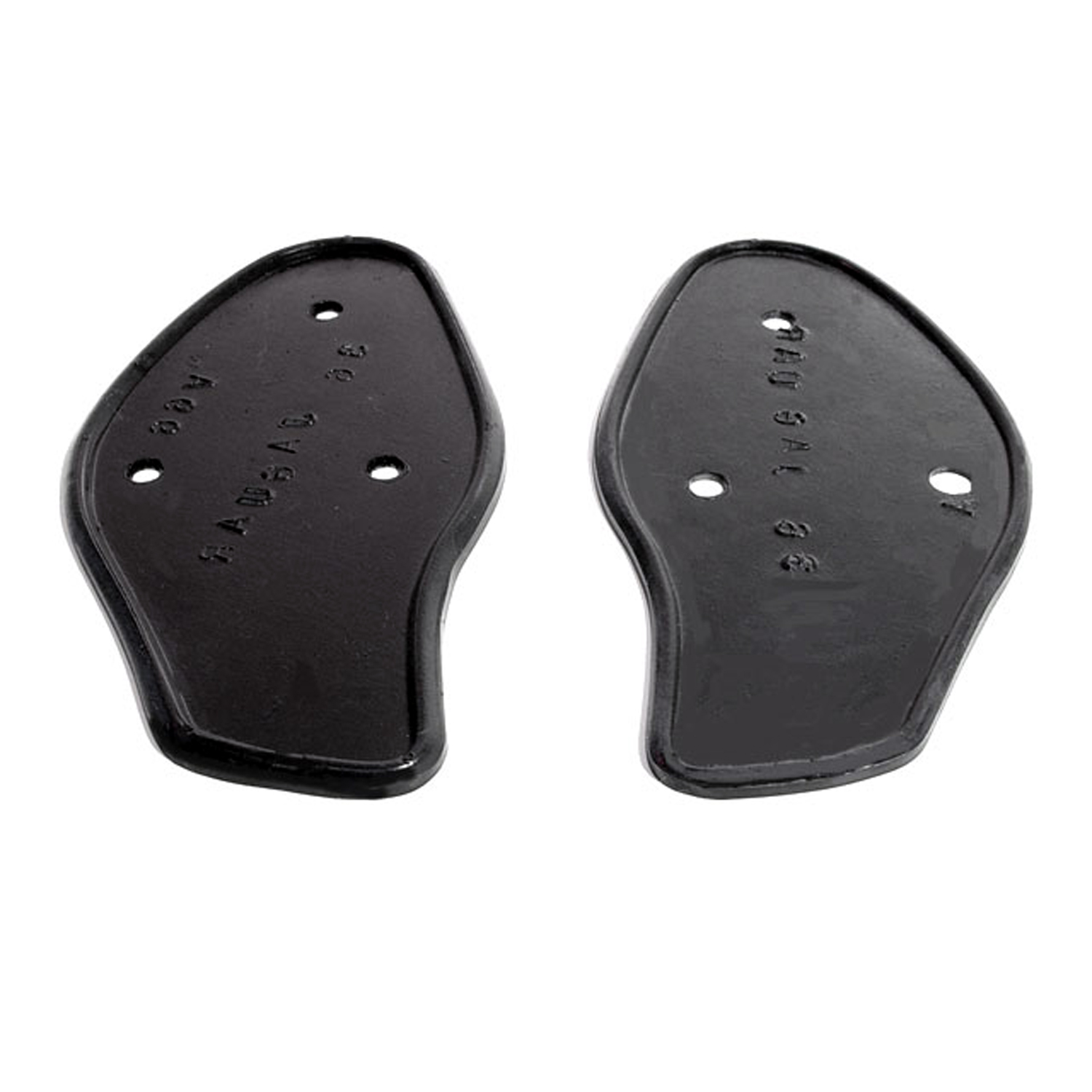 1939 Jaguar SS100 Windshield Post Pads. 3-1/4" wide X 6-1/8" long. Pair R&L-MP 799-AWindshield Post Pads. 3-1/4" wide X 6-1/8" long. Pair R&L
1939 Jaguar SS100 Windshield Post Pads. 3-1/4" wide X 6-1/8" long. Pair R&L-MP 799-AWindshield Post Pads. 3-1/4" wide X 6-1/8" long. Pair R&L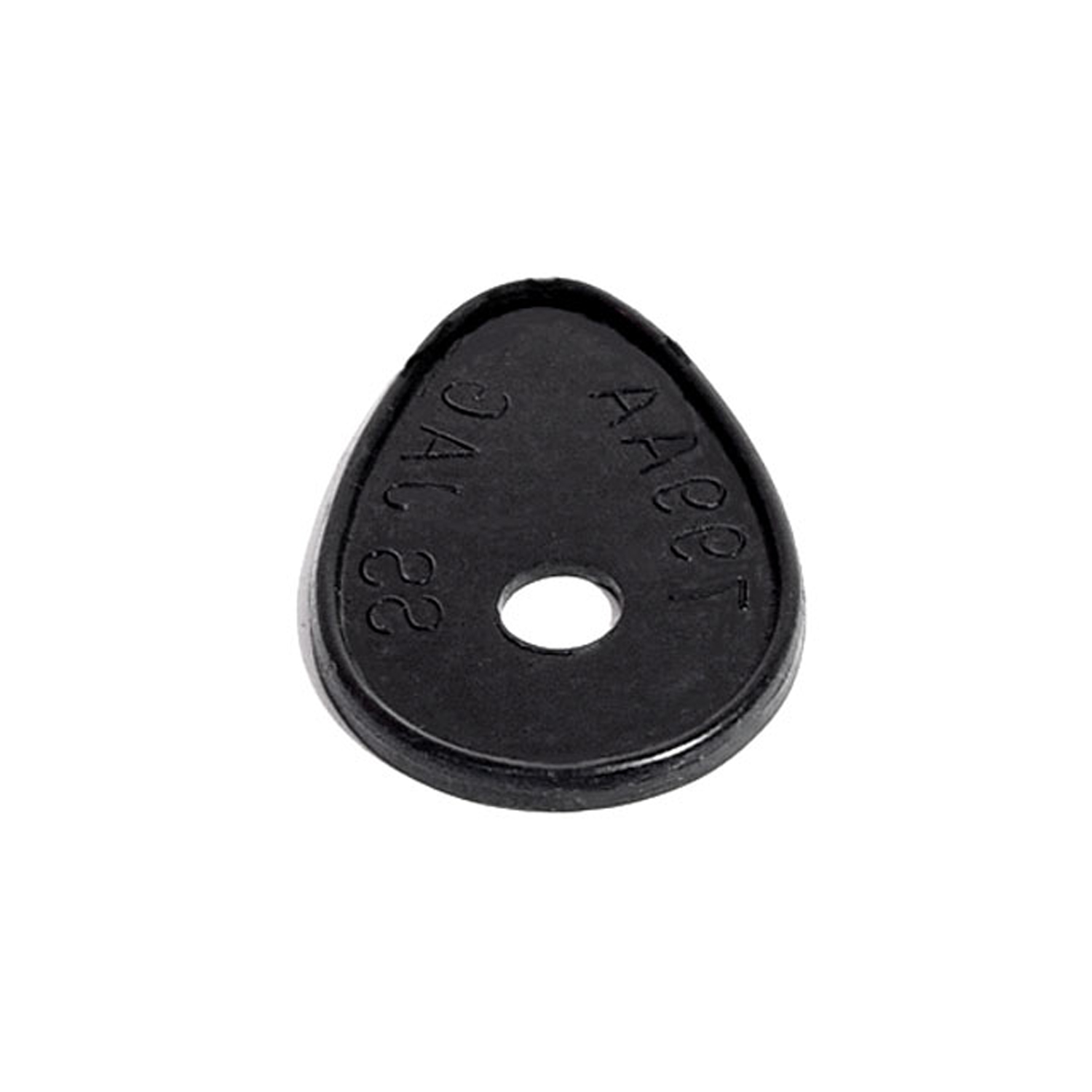 1939 Jaguar SS100 Fender Mirror Pad. 1-3/8" wide X 2-1/8" long. Each-MP 799-AAFender Mirror Pad. 1-3/8" wide X 2-1/8" long. Each
1939 Jaguar SS100 Fender Mirror Pad. 1-3/8" wide X 2-1/8" long. Each-MP 799-AAFender Mirror Pad. 1-3/8" wide X 2-1/8" long. Each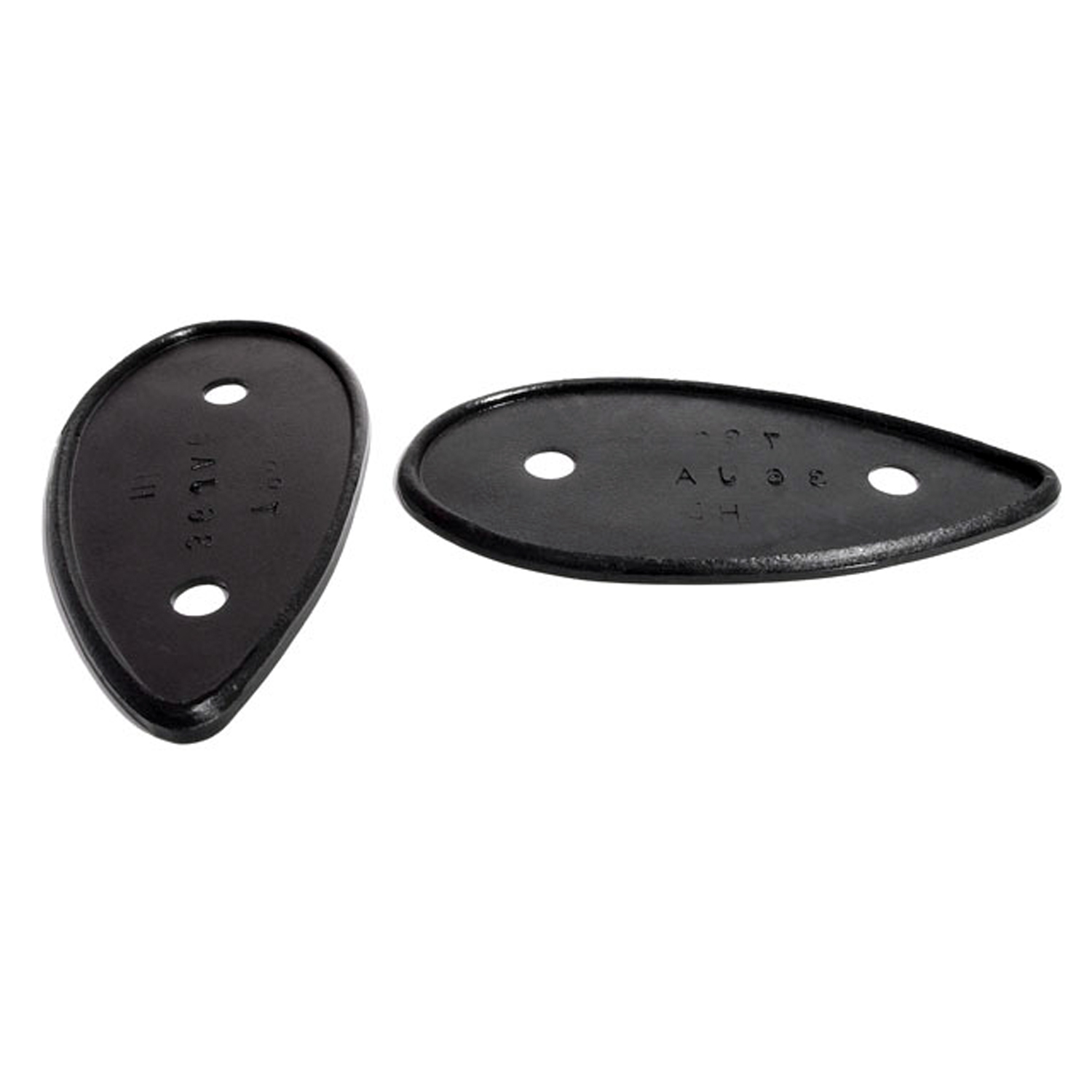 1939 Jaguar SS100 Headlight Pads. 2-5/8" wide X 5-1/8" long. Pair-MP 799-BHeadlight Pads. 2-5/8" wide X 5-1/8" long. Pair
1939 Jaguar SS100 Headlight Pads. 2-5/8" wide X 5-1/8" long. Pair-MP 799-BHeadlight Pads. 2-5/8" wide X 5-1/8" long. Pair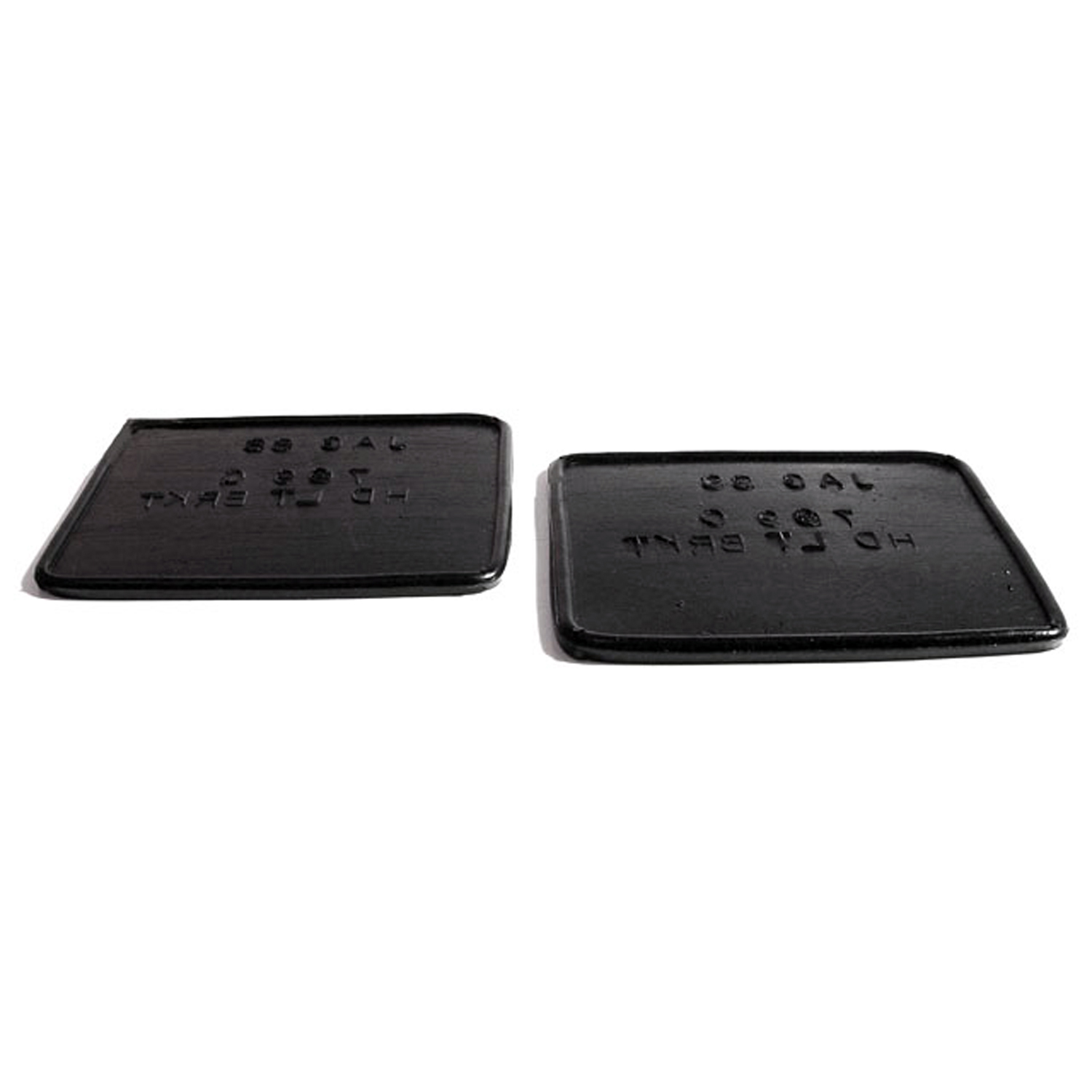 1939 Jaguar SS100 Headlight Pads. 3" wide X 2-5/8" long. Pair-MP 799-QHeadlight Pads. 3" wide X 2-5/8" long. Pair
1939 Jaguar SS100 Headlight Pads. 3" wide X 2-5/8" long. Pair-MP 799-QHeadlight Pads. 3" wide X 2-5/8" long. Pair 1939 Jaguar SS100 Tail-light pads. 3-3/4 in. W x 3-5/8 in. L. Pair.-MP 799-RTail-light pads. 3-3/4 in. W x 3-5/8 in. L. Pair.
1939 Jaguar SS100 Tail-light pads. 3-3/4 in. W x 3-5/8 in. L. Pair.-MP 799-RTail-light pads. 3-3/4 in. W x 3-5/8 in. L. Pair.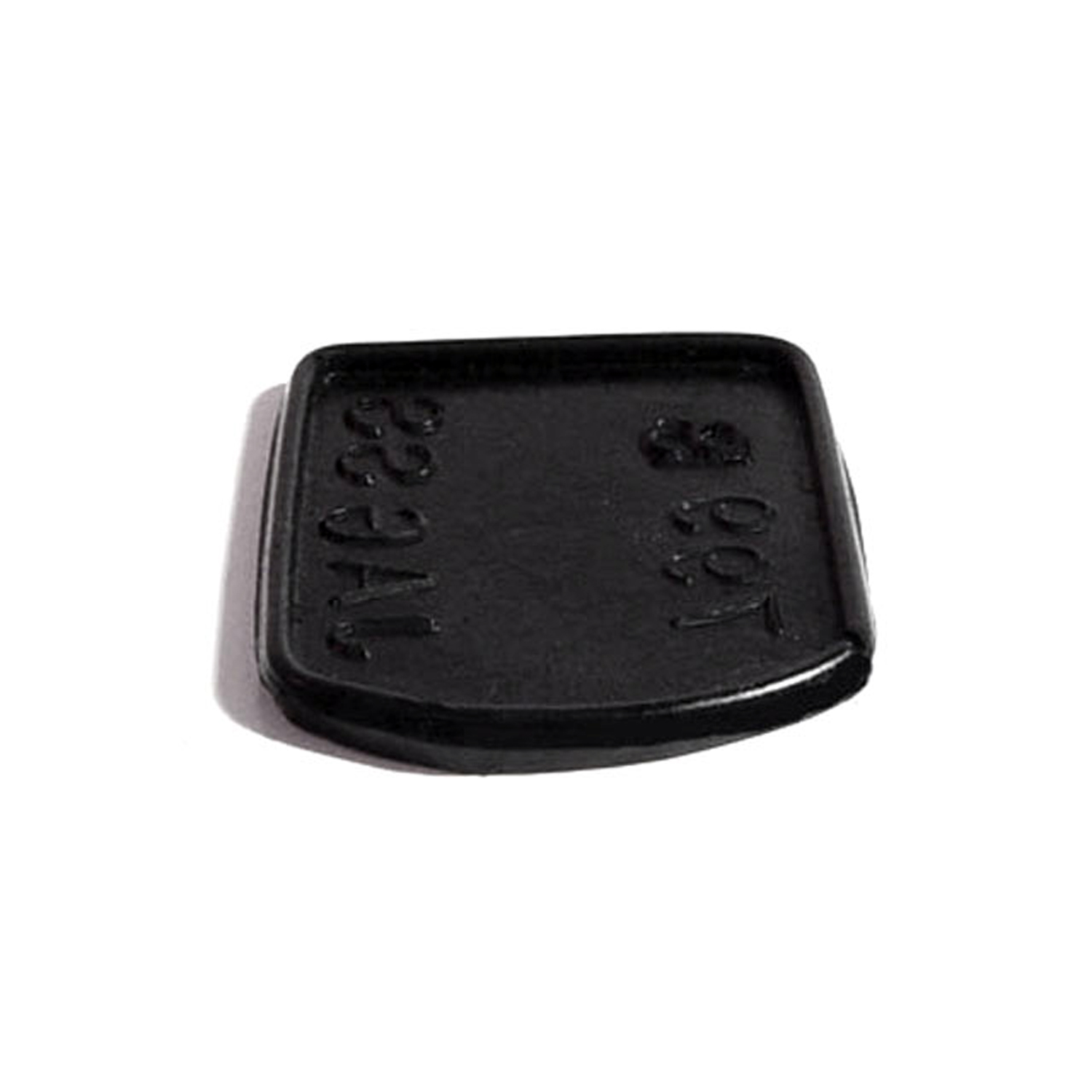 1939 Jaguar SS100 Windshield Wiper Transmission Pad-MP 799-SWindshield Wiper Transmission Pad. 1-1/4" wide X 1-5/8" long. Each
1939 Jaguar SS100 Windshield Wiper Transmission Pad-MP 799-SWindshield Wiper Transmission Pad. 1-1/4" wide X 1-5/8" long. Each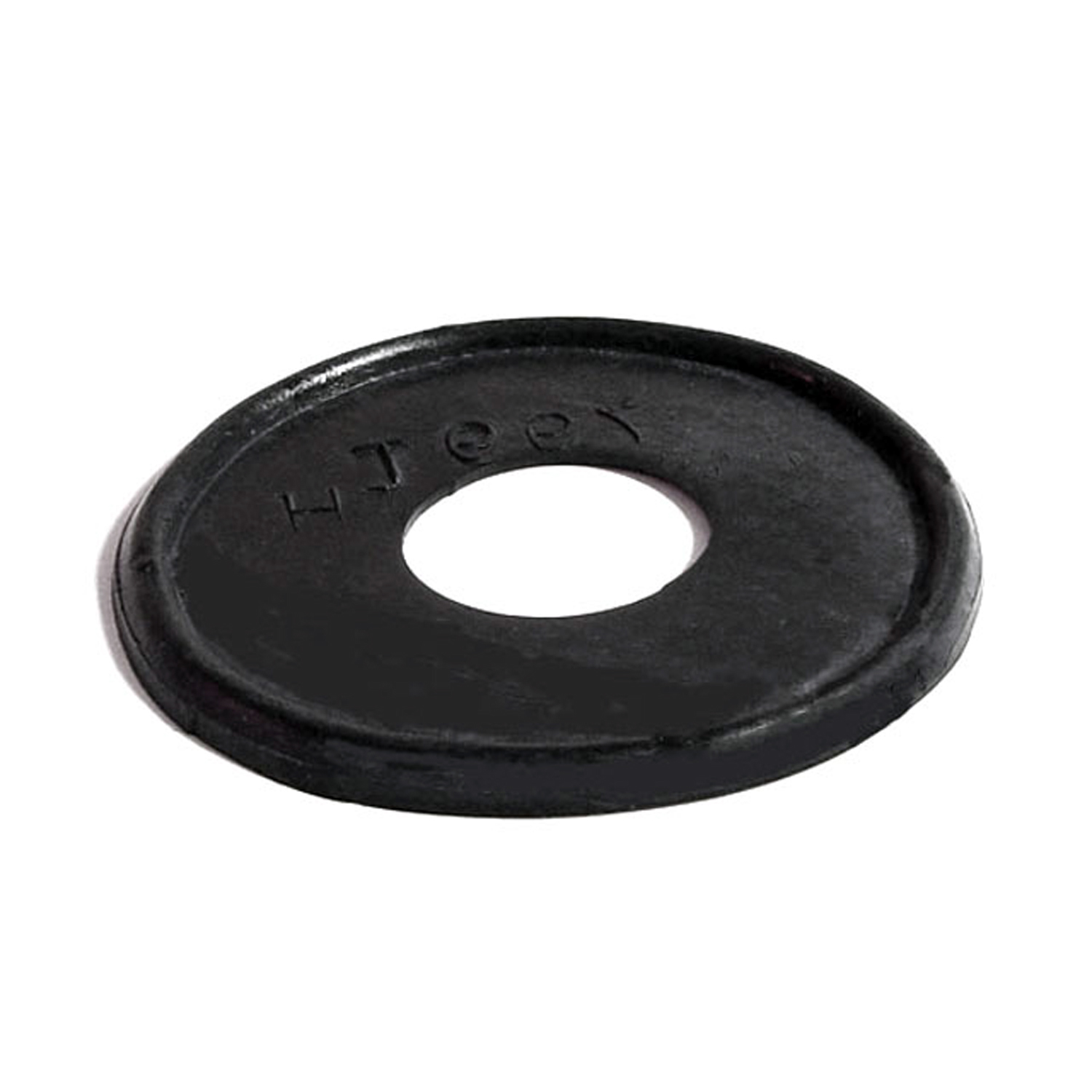 1939 Jaguar SS100 Hood Latch Pad. 2-1/4" O.D. Each-MP 799-THood Latch Pad. 2-1/4" O.D. Each
1939 Jaguar SS100 Hood Latch Pad. 2-1/4" O.D. Each-MP 799-THood Latch Pad. 2-1/4" O.D. Each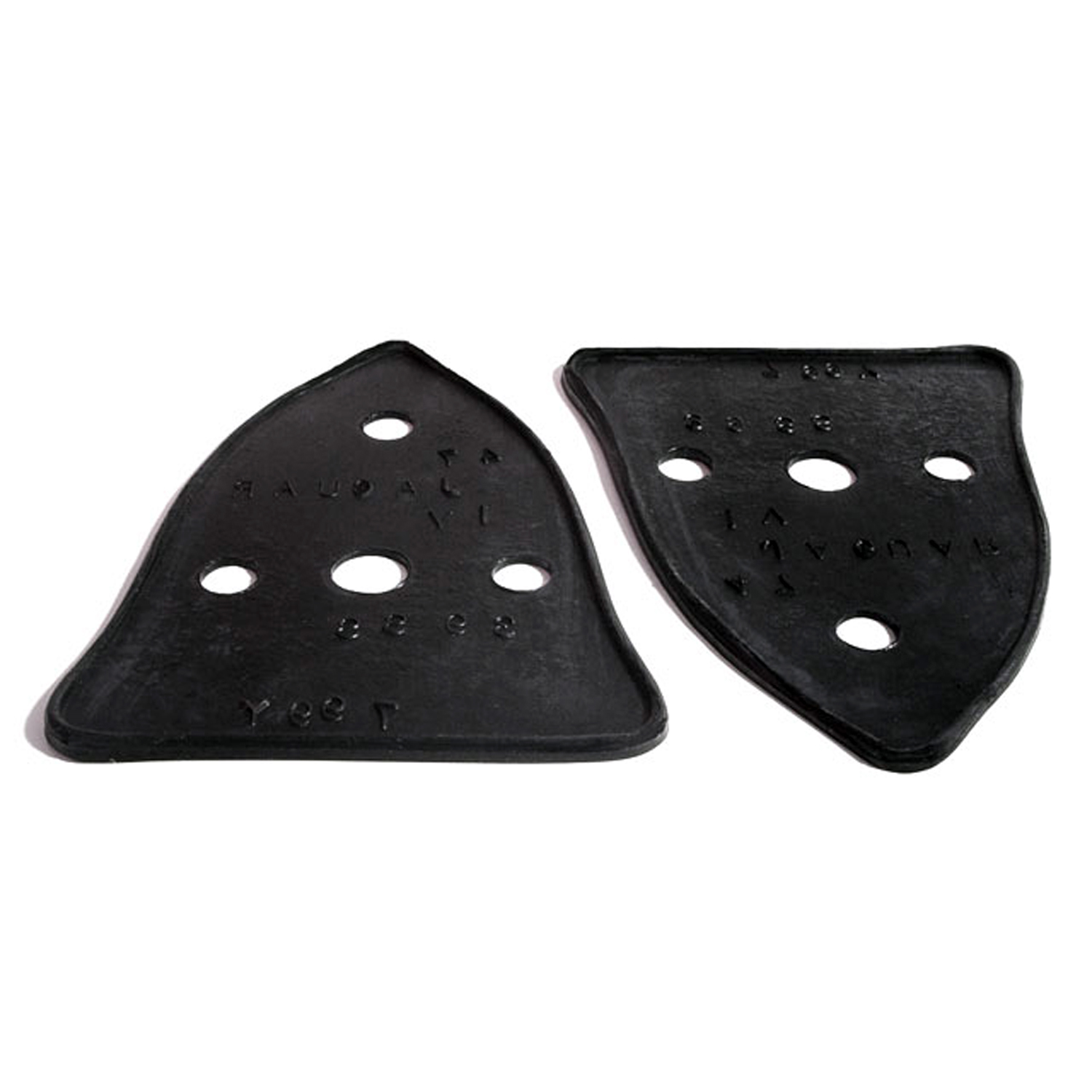 1939 Jaguar SS100 Headlight Pads. 3-7/8" wide X 5-1/8" long. Pair-MP 799-YHeadlight Pads. 3-7/8" wide X 5-1/8" long. Pair
1939 Jaguar SS100 Headlight Pads. 3-7/8" wide X 5-1/8" long. Pair-MP 799-YHeadlight Pads. 3-7/8" wide X 5-1/8" long. Pair 1939 Jaguar SS100 Spark plug wire boot. Exclusive Metro part-RP 1-KSpark plug wire boot. Exclusive Metro part. Fits on the distributor cap end. Note: looks similar to coil boot, but is physically smaller. Replaces OEM# CO 2609. Each.
1939 Jaguar SS100 Spark plug wire boot. Exclusive Metro part-RP 1-KSpark plug wire boot. Exclusive Metro part. Fits on the distributor cap end. Note: looks similar to coil boot, but is physically smaller. Replaces OEM# CO 2609. Each.Why Choose Metro?
For over 100 years, Metro Moulded Parts has been the pinnacle of quality in classic car restoration parts. Our commitment to precision and authenticity in every component ensures a perfect fit and an OEM-level appearance.
- Expert Craftsmanship & Quality: Each part is a testament to our dedication to reliability and perfection, crafted from original designs and thoroughly tested.
- Advanced Technology: We use cutting-edge techniques to create flawless, long-lasting parts that surpass others in performance.
- SuperSoft Sponge – The Ultimate Door Seal: Not only are our door seals 30% softer than competitors', but they're also guaranteed to never leak. They effectively reduce wind and road noise, enhancing your classic car's comfort and driving experience.
- Proudly American: Our parts are a product of American craftsmanship, made in the USA with a spirit of excellence and heritage.
- Unrivaled Warranty: We back our products with a 30-year industry-leading warranty, a testament to our confidence in their quality.
Join us in preserving the legacy of classic cars with parts that are crafted for perfection, not just made.

